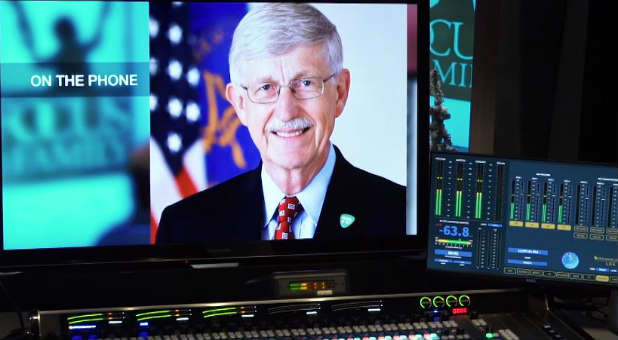NIH Director: COVID-19 Mortality Rate Is Probably 10 Times Higher Than the Flu
Dr. Francis Collins, director of the National Institutes of Health, says NIH is already working on testing out vaccines on volunteers to see if injecting bits of the COVID-19 coronavirus (not enough to infect someone) would be enough for the body to create antibodies against it. However, many trials are planned, meaning the vaccine isn’t expected to be ready for at least a year.
But Americans need to take this seriously, because mortality rate is estimated to be 10 times higher than the flu, Collins says. Even those who catch COVID-19 and don’t have complications are now capable of endangering someone who has a compromised immune system.
“Since we are the largest supporter of biomedical research in the world, we are [all in and doing] everything we can do to speed up the process of finding possible treatments for people who do get infected, as well as moving this vaccine forward as fast as we can,” Collins says.
“It’s very serious. This is a virus that spreads extremely quickly; it is so transmissible even by people who have no symptoms but who have gotten exposed and are carrying it around. … It’s a more serious disease than the flu, just in terms of its consequences. It is a respiratory illness; it gets to the lungs, and that is the greatest source of concern, and particularly for older people and people with chronic diseases.
“We estimate now that the mortality rate from this particular virus is probably in the neighborhood of 1 or 2%, and that is 10 times higher than influenza, so you can quickly see why we are taking this so seriously. … We are facing something we have not seen in my lifetime.”
A Christian himself, Collins told Focus on the Family that Christians have a responsibility to be wise in their actions so they don’t contract the coronavirus and accidentally spread it around. He also says we need to remember Scriptures that discourage us from being afraid.
“This is a great moment for Christians to be in this space of recognizing that we have a responsibility for those who particularly need that support, for those who are most vulnerable. In this case, it’s people with other medical issues or the elderly. It’s up to us to help protect them. …
“We are called to be strong and courageous. We are also called to be people of generosity, and of willingness to try to put ourselves out there to help others.”
He says he actually used to be an atheist, and now as a Christian, he has no problem reconciling science with Christianity. Collins says science can even be a form of worship to God.
To learn more about the process of getting this vaccine ready and how to respond to this coronavirus as a Christian, click here for the entire interview.




























































